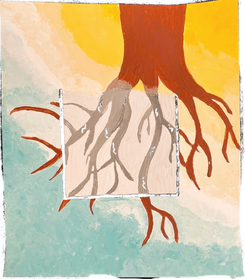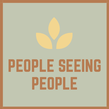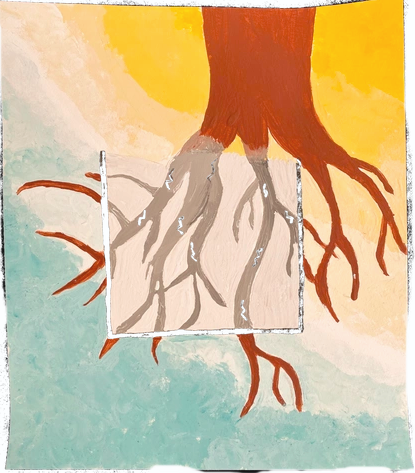 Our first interview features Isaac Hoffman the Director of La Crosse Area Family Collaborative. Homelessness represents one crisis facing the La Crosse community. In an effort to shine light on this issue, People Seeing People will dedicate their initial interviews to unveiling the many complexities of the homeless population in La Crosse. When describing the work at the Collaborative Isaac stated, “We really have no agenda. We are just trying to be helpful: social work at its roots. We work with families who are not the stereotypical homeless population. They often go under the radar because if they are seen out on the streets with their kids, there's fear of getting their children taken away... The type of social work that we're doing right now is prevention. It is 100% led by family’s identified needs. Our social workers need to be social workers. The system has turned them into half secretaries and half social workers. The goal is to help folks with extremely dynamic situations reach stability.”
Throughout the interview Issac often referred to the work at the Collaborative as aiming to disrupt the system in order to meet the needs of the people they serve. “We’re disrupters of the system...We have a unique space to be able to push and pull on the system and we’re kind of disrupters in some ways intentionally. We [the systems] are really good at creating boxes and if you don't fit in my box you go somewhere else and so you end up ping ponging people all over because they don’t fit perfectly in your box and that’s not a good system.” Further into the interview Isaac sought to explain a solution to providing people in the community with the support they need. “We need to invest in prevention… When your basic needs aren't met, especially housing you’re paralyzed by that and focused on what you need to do to survive. One of the biggest issues is prevention. We all know that if you invest in prevention early it’s going to save long term. In terms of resources and the human cost, our system needs to evolve in a big way.” Isaac proposed a unique perspective on being poor when he stated, “It’s expensive to be poor… Mental health does not discriminate based on how much money you make; however, some people don’t end up on the streets because they have access to resources, family, a social network, and other things, while folks living in poverty are more vulnerable to all of the issues. It’s expensive to be poor. For example, automobiles, folks we work with get into cycles of buying automobiles they can afford, but those are usually crap and then they break and the cycle continues. It’s more expensive to be poor in that regard and our system definitely has systemic issues.” One of the most disheartening, yet honest aspects of our interview with Isaac was when he conveyed that many people see the homeless community as, “Not Relatable... People assume this population doesn’t have values that others would have as it relates to our kids or trust. Would I let a stranger go and watch my kids? Absolutely not. Why would I expect somebody who’s homeless to do it just because they’re homeless?” When asked how we and others could support the efforts of the La Crosse Area Family Collaborative, Isaac included that we need to “become educated about and learn the dynamics that create these situations in the first place. Learn how these stereotypes are made. Society makes judgements against this population and that leads to negativity. Learn to understand other perspectives, the meaning of implicit bias and why it exits, and learn about the what and why of historical trauma. People are still in the streets protesting. It drives me nuts when people say, “you know slavery ended 100 years ago,” to not understand that pain is still present. Challenge your perspective, we all make our minds up so quickly and we think we know what has led to a situation or we think we know what people need to do to get out of a situation… We think we know how to get out of situations and we think we know what led to situations, but those are all driven by our own experiences and our own perspectives and that’s not always applicable to every person or every situation. Always try to put yourself in someone else’s shoes and not judge.” A message from Isaac for all to consider, “So maybe we don’t always know the answer. We cannot save every person we meet, but if we get to know each other and we take time to learn and teach ourselves about different cultures and the history of our community members we cannot only grow together, but be better together.” This is a message that truly captures the mission of People Seeing People. Artist’s Note: The roots symbolize the larger system. Inside the box is how the system works with black and white outlines indicating both the broken and confining system. Outside of that square, is the work that is being done to combat the system, to disrupt the brokenness and to bring a new hope.
0 Comments
Leave a Reply. |
|

